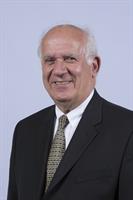Here is an interview with Cihan Dagli of Missouri University of Science and Technology which talks about his experience and perspective as a faculty of the academic equivalency program. Happy SEPtember!

This interview was done in 2022.
Q2. What is one of your proudest professional achievements?» My proudest professional achievements are:
1. Founding organizing and chairing ANNIE Artificial Neural Network in Engineering Conferences 1991 -2011.
2. Founding organizing and chairing Complex Adaptive Systems Conferences 2012 to date
3. Founding and directing Systems Engineering Graduate Program at Missouri University of Science and Technology from 2000 to date 4. Integrating all these activities with the popular theme of today AI in Systems Engineering and Systems Engineering in AI based on over 40 years of experience in each of these fields
Q3. What skills do you think a systems engineer should develop during their education?
» Good systems engineers are excellent engineers and basic scientists first then systems engineers. We need to build up systems engineering , systems architecting, artificial intelligence, namely; adaptive or achromous systems and complex systems concepts based on strong foundation in engineering and applied science. Ability to think systems as a whole is a fundamental for them. This is generally identified with the term systems thinking. They should be good communicators, listeners who can formulate the right questions so that correct decision problems are defined and correct sequence of decision are made in responding dynamically changing needs. Our program is build on these ideas in our course design and integration and continuingly involving.
Q4. What was your university’s motivation behind joining the academic equivalency program?
» Our basic motivation was to provide a platform for our program within INCOSE community so that we can continuously inform the community adaptive nature of the graduate program in meeting the needs of international practicing systems engineers as the systems that we are designing evolve. The second motivation was to create an ecosystems for system engineering education. Missouri S&T is a main partner of this new activity SEEE- SYSTEMS ENGINEERING EDUCATION ECOSYSTEM.
Q5. What do you see as the benefits of the academic equivalency program for a university and a student?» This is very well explained in the basic vision statement of SEEE. https://beta.incose.org/seee/vision You can also see the founders and the team. I am one of the founders. https://beta.incose.org/seee/team.
Q6. How do your SE courses differ from those at other universities?
» Our MS degree programs has a modular structure having six core systems engineering courses and four elective courses where students can earn a second graduate certificate based on their selection. Four out of six systems engineering core courses are sufficient to get a systems engineering graduate certificate. Second graduate certificate can be from system engineering or other engineering or basic science discipline. Hence each graduate has their unique characteristic in the degree they receive based on their choices of second graduate certificate. Here is an example program: . Computational Intelligence Engineering Emphasis SYS ENG 5101 Systems Engineering and Analysis SYS ENG 6102 Information Based Design SYS ENG 6103 Systems Life Cycle Costing SYS ENG 6104 Systems Architecting Receive Systems Engineering Graduate Certificate SYS ENG 5211 Computational Intelligence SYS ENG 5212 Introduction to Neural Networks and Applications SYS ENG 6213 Deep Learning and Advanced Neural Networks SYS ENG Elective: Like Modeling Complex Systems Receive Computational Intelligence Engineering Graduate Certificate Sys Eng 6542 Model Based Systems Engineering Sys Eng 6196 Systems Engineering Capstone Receive Master of Science in Systems Engineering.
Q7. How do your SE courses help students to deepen their understanding of systems engineering?
» The students are exposed to a variety of opinions, tools and methodologies. The end point of the inclusion of design prototyping, electronics, software development, and validation from a real world customer is a more personal understanding of the processes and results of systems engineering realities.
Q8. What methods do you use to teach SE courses effectively?
» Our courses are synchronous live both on campus and off campus. They are recorded and archived for viewing 24/7 throughout the semester and deleted at the end of the semester. The systems engineering pedagogy used in the program is to expose students to the wide range of influences that program managers and systems engineers face in real programs, along with the systems engineering tools that are needed to produce the best balanced development of today’s complex systems, while incorporating “real-world” problems that expand the students’ knowledge base in the area of “system life-cycle.”
Q9. What is your advice for universities or institutes considering applying for academic equivalency?
» They can look the programs of current universities who have secured INCOSE Academic Equivalency and contact them. I also advise them to look at SEEE- SYSTEMS ENGINEERING EDUCATION ECOSYSTEM vision links that I provided earlier.
Q10. How can we reach out to you?
» You can reach me at:
https://www.linkedin.com/in/cihan-dagli-70a0b26/
Know more about academic equivalency from here.